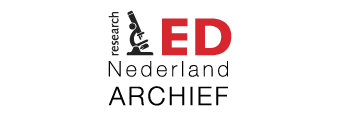
Hartger Wassink
Coördinator NIVOZ Denktank
Workshop
Kennis over onderwijs: feiten, verhalen en waarden
Iedere onderwijskundige beslissing is altijd ook een normatief-pedagogische beslissing. In onderwijskundig onderzoek en ook in de lerarenopleiding blijven de normatieve uitgangspunten helaas vaak impliciet. Dit leidt ertoe, dat leraren het risico lopen hun beslissingen te baseren op een eenzijdig type onderwijskundige kennis: de feiten. Maar naast de feiten, doen de verhalen ertoe. De verhalen van de leerlingen om te beginnen, maar ook de verhalen van de leraren zelf. Deze geven context, en laten zien in welke gevallen welke feiten meer relevant zijn dan andere.
Tot slot zijn die verhalen een ingang op onderliggende waarden. Gelijkheid, ontplooiing, verbondenheid, vertrouwen zijn waarden die velen in het onderwijs onderschrijven. De vraag is of, en hoe we ze in het dagelijks werk als leraar als richtsnoer kunnen gebruiken.
Door feiten, verhalen en waarden te combineren, ontstaat er zicht op de breedte en diepte van de professionele afwegingen die leraren dagelijks maken. Door verhalen en waarden expliciet te betrekken, zijn leraren in staat zich ook op de morele dimensie van hun vak professioneel te ontwikkelen.
In deze workshop licht ik bovenstaande uitgangspunten toe, en oefenen we ermee aan de hand van concrete voorbeelden uit lessituaties.
Knowledge about education: facts, stories and values
Education is a moral practice, and that is why educational decisions are always also moral decisions. In educational research (as well as in teacher education) this moral dimension of education and teaching practice is seldomly discussed. Evidence-based, or evidence-informed, education, is generally aimed just one type of educational knowledge: what we consider to be facts. I’d like to propose, that in addition to these facts, stories also have their importance: stories of students and of teachers. These narrative accounts provide context and give insight in when some facts are more relevant than others.
These narratives are an important way to shed light on the underlying values that are at stake. For instance, equality, unfolding of potential, relationship, and trust are all important educational values that are widely recognised. However, it is still unclear in what way teachers ‘use’ these values in their daily work.
By combining facts, stories and values in studying education practice, we can fully explore the depth and breadth of teachers’ day-to-day professional decisions. In that way, teachers will be able engage in development of the moral dimension of education. In this workshop I will further discuss these ideas and we’ll consider some cases from teaching practice to explore what the added value of this perspective could be.
Meer info
Bio
Hartger Wassink is onderzoeker en adviseur in het onderwijs. Hij werkt voor Stichting NIVOZ, waar hij zich als coördinator van de NIVOZ Denktank richt op het faciliteren van de dialoog tussen onderzoekers en professionals over betekenisvol onderwijsonderzoek.
Archief
Amsterdam 2018
Kennis over onderwijs: feiten, verhalen en waarden
Iedere onderwijskundige beslissing is altijd ook een normatief-pedagogische beslissing. In onderwijskundig onderzoek en ook in de lerarenopleiding blijven de normatieve uitgangspunten helaas vaak impliciet. Dit leidt ertoe, dat leraren het risico lopen hun beslissingen te baseren op een eenzijdig type onderwijskundige kennis: de feiten. Maar naast de feiten, doen de verhalen ertoe. De verhalen van de leerlingen om te beginnen, maar ook de verhalen van de leraren zelf. Deze geven context, en laten zien in welke gevallen welke feiten meer relevant zijn dan andere.
Tot slot zijn die verhalen een ingang op onderliggende waarden. Gelijkheid, ontplooiing, verbondenheid, vertrouwen zijn waarden die velen in het onderwijs onderschrijven. De vraag is of, en hoe we ze in het dagelijks werk als leraar als richtsnoer kunnen gebruiken.
Door feiten, verhalen en waarden te combineren, ontstaat er zicht op de breedte en diepte van de professionele afwegingen die leraren dagelijks maken. Door verhalen en waarden expliciet te betrekken, zijn leraren in staat zich ook op de morele dimensie van hun vak professioneel te ontwikkelen.
In deze workshop licht ik bovenstaande uitgangspunten toe, en oefenen we ermee aan de hand van concrete voorbeelden uit lessituaties.
Knowledge about education: facts, stories and values
Education is a moral practice, and that is why educational decisions are always also moral decisions. In educational research (as well as in teacher education) this moral dimension of education and teaching practice is seldomly discussed. Evidence-based, or evidence-informed, education, is generally aimed just one type of educational knowledge: what we consider to be facts. I’d like to propose, that in addition to these facts, stories also have their importance: stories of students and of teachers. These narrative accounts provide context and give insight in when some facts are more relevant than others.
These narratives are an important way to shed light on the underlying values that are at stake. For instance, equality, unfolding of potential, relationship, and trust are all important educational values that are widely recognised. However, it is still unclear in what way teachers ‘use’ these values in their daily work.
By combining facts, stories and values in studying education practice, we can fully explore the depth and breadth of teachers’ day-to-day professional decisions. In that way, teachers will be able engage in development of the moral dimension of education. In this workshop I will further discuss these ideas and we’ll consider some cases from teaching practice to explore what the added value of this perspective could be.


